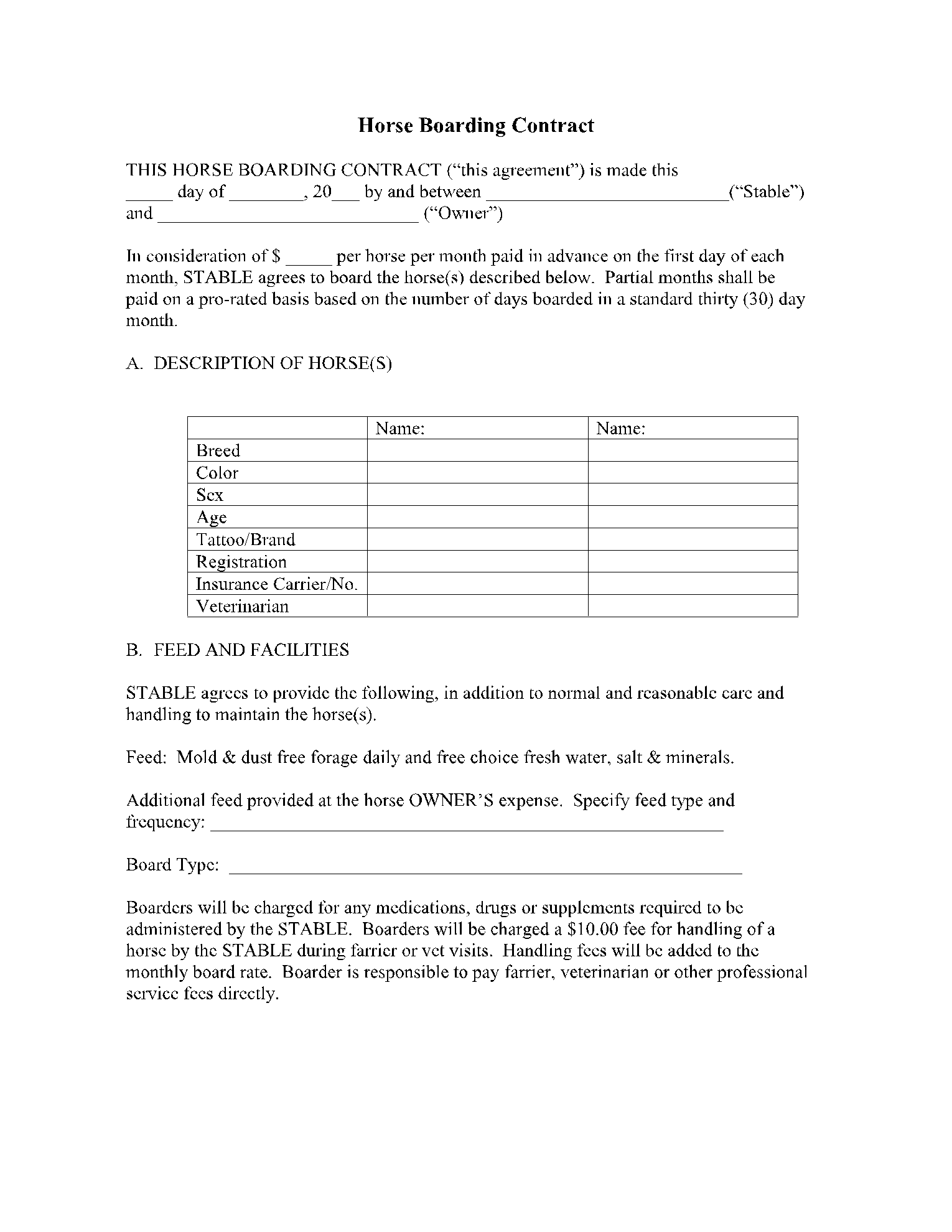Lions might be the lord of all animals, but horses are the noblest of them all. Whether they be skewbald, sorrel, palomino, or Iberian breeds, you cannot but marvel at what amazing creatures they are. The wind wisps their manes into the air like flames, and they neigh like the mighty pets you never had. If this is the case with you, and you are considering boarding, it is high time you drafted a horse boarding contract.
Sealing horse boarding deals has gone past handshakes. More and more boarding houses are beginning to draw up legal contracts to seal boarding agreements by law.
What is a horse boarding contract?
A horse boarding contract is a legally binding service agreement between the stable owner and the client wishing to board a horse/horses. Also known as the horse boarding agreement, it clearly states the responsibilities of both parties, addresses potential liability issues and emergencies that might arise during the relationship.
Without a contract to specifically profile the rights and obligations of both parties, the general property law (bailment arrangement) shall preside. The stable owner would only be liable for the loss if the horse owner can prove beyond all reasonable doubt that the former didn't provide equitable care. In this kind of arrangement, the horse owner is called the 'bailor' and the stable owner, the 'bailee.'
What is included in a horse boarding contract?
It will take a couple of pages to exhaust the list of clauses in an equine boarding contract. However, we will be taking a look at the most important of them all.
Identification of horses:
This introductory paragraph is included to describe the horse using metrics like name, breed, age, sex, markings, tattoo number, and color.
Fees:
Here, the prices paid for boarding are clearly noted. It should also state whether the fees are to be paid on a weekly, monthly, or annual basis, etc.
Facilities and feed:
This section highlights general information about the stable, including size, available pasture area, and the volume of feed provided each day.
Coggins test:
Here, the horse owner will indicate that he/she owns the horse and will put forth proof of a negative Coggins test on request or before boarding.
Risk of loss:
This clause states that insurance is the owner's responsibility, and the stable is not liable for the loss of the horse.
Notice of termination:
This clause explains the parties' rights to terminate the boarding relationship when they deem fit. It is usually stated that the one who chooses to trigger this clause should give 30 or 90 days' prior notice.
Why is a horse boarding contract important?
The importance of curating a horse boarding contract cannot be overemphasized. This is the case regardless of the number of horses. Let us take a look at some of the reasons why they are necessary.
To begin with, they help to manage misunderstandings between the client and the horse boarding service provider. More than that, they also limit liability and set clear responsibilities for both parties to fulfill.
Conclusion
If you are looking for a free horse boarding contract template to draw up yours, CocoSign has got you covered. The platform contains expert-drafted templates you can use as a guide. All you need to do is to visit CocoSign, and personalize your own horse boarding contract.
